2020 Awards Finalists
The KiwiNet Awards celebrate heroes in research commercialisation — those individuals and organisations whose best practice approach is changing the innovation landscape in New Zealand. We congratulate the 2020 finalists!
Norman Barry Foundation Breakthrough Innovator Finalists
This award recognises an upcoming entrepreneurial researcher who is making outstanding contributions to business innovation or is creating innovative businesses in New Zealand through technology licencing, start-up creation or by providing expertise to support business innovation.
 Dr Swati Gupta
Dr Swati Gupta
Inclusys
Talk With Me - opening the world of communication to people with autism
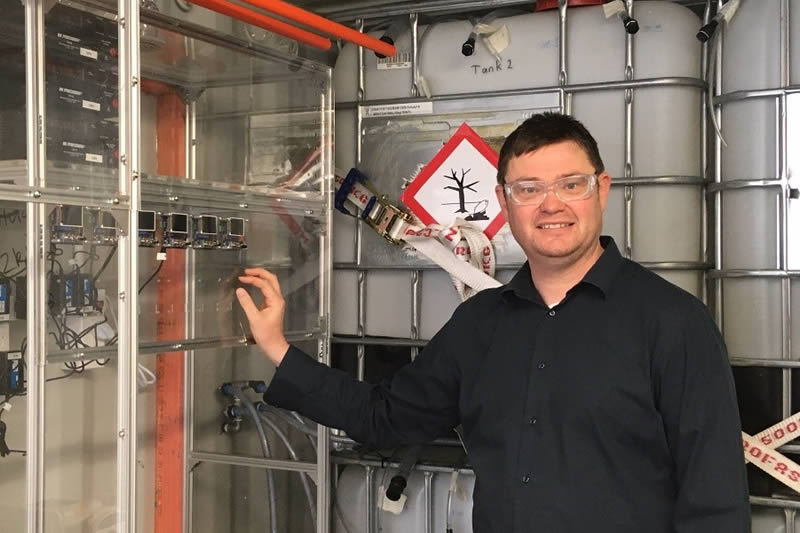 Associate Professor Aaron Marshall
Associate Professor Aaron Marshall
University Of Canterbury
Zincovery - extracting value and improving the environment through the treatment of waste from the galvanising industry
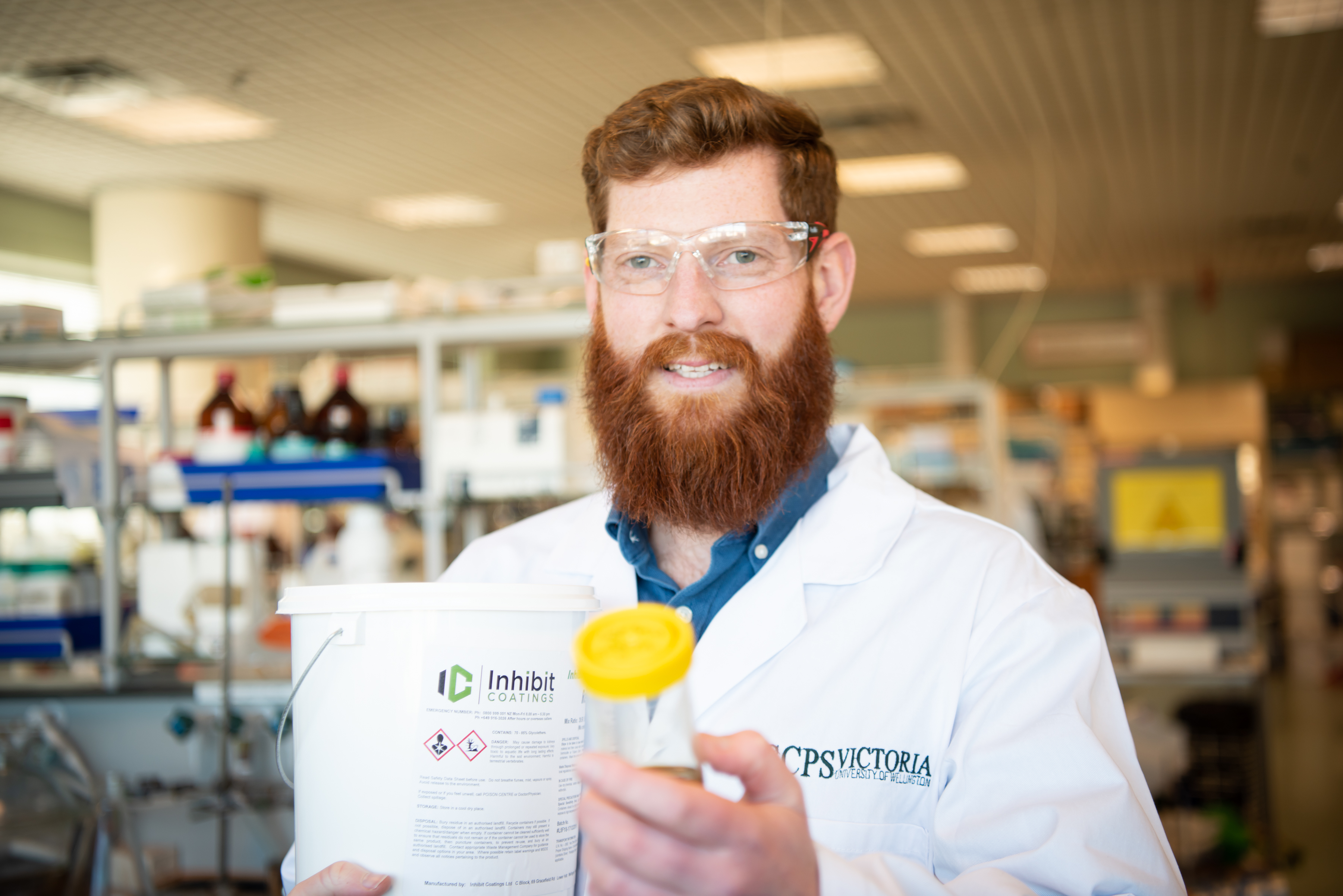 Dr Eldon Tate
Dr Eldon Tate
Inhibit Coatings
Antimicrobial coatings keeping people safe in food and healthcare industries
Dr Swati Gupta - Inclusys
Talk With Me - opening the world of communication to people with autism


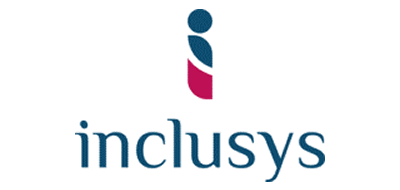
People with autism find interacting with others challenging. This leads to isolation, loneliness, depression, dysfunctional relationships and unemployment. Dr Swati Gupta, Founder and CEO of Inclusys, has developed ‘Talk With Me’, a platform for caregivers/educators to help people with autism learn social interaction skills and experience the joy of connecting with others.
Learners sit alongside and share the app with the people in their life, to have social conversations. It comes with a diverse range of topics to talk about. Parents/educators customise the learning content as per the learner’s needs, and create their own content. Talk With Me can also be used for speech/language disorders, ADHD and Cerebral Palsy.
Talk With Me was first conceptualised as a proof-of-concept by the Callaghan Innovation Assistive Devices team in 2015, led by Swati Gupta, Principal Research Scientist.
International trials produced outstanding results: over twenty minutes of independent conversation, minimal intervention, excellent joint attention, eye-contact cooperation, verbalisation and turn taking. Skills learned in the app are transferred to everyday life. These are astounding results for children who have attention spans of max three minutes, minimal social interaction, and require high intervention.
The Inclusys approach to teaching conversation skills is more efficient than conventional therapy, where the focus is on first building pre-requisites like turn taking and verbalisation. Talk With Me’s approach recommends straightaway engaging a child in conversation during a meaningful activity; prerequisites follow as a result.
In 2017 Swati was chosen as an Emerging Innovator by KiwiNet and Norman Barry Foundation, to help her commercialise Talk With Me and develop entrepreneurial skills. In 2018 she founded Inclusys, which has already attracted two rounds of significant private investment and is partnering with schools and autism organisations to take the product to market. In 2018 Swati won a special award for ‘Start-up with Best Social Value’ from Zino Ventures.
Associate Professor Aaron Marshall, University Of Canterbury
Zincovery - extracting value and improving the environment through the treatment of waste from the galvanising industry

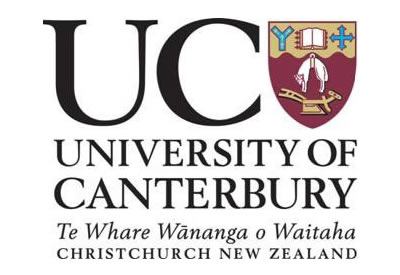


University of Canterbury's Associate Professor Aaron Marshall, a co-founder of Zincovery, is an entrepreneur with a keen interest in solving real-world industrial problems. He is currently commercialising a process to treat the waste generated by the galvanising industry. This waste is strongly acidic, saturated with dissolved iron and zinc, and an environmental problem.
Currently, this waste is neutralised and landfilled (~ 1,500,000 litres per year in New Zealand). On average, galvanizers pay NZ$0.50 per litre to dispose of this waste, which is approximately 5-10% of all galvanizing costs. This disposable method is environmentally damaging as zinc can leach from these landfills, harming aquatic life.
Globally, over $250M per year of zinc is landfilled in this manner – a significant waste of a finite and valuable resource.
Until recently, it was not possible to economically treat this waste to recover the valuable zinc. The key breakthrough came when MacDiarmid Institute investigator Associate Professor Marshall, from University of Canterbury's Department of Chemical and Process Engineering, applied a non-conventional method to facilitate the separation of zinc from the waste acid.
Together with Jonathan Ring (Marshall's master's student, and now co-founder of Zincovery), a complete process based around this separation technology has been developed and is now in the early stages of commercialisation. This work has been supported by two rounds of PreSeed Accelerator Fund investment from KiwiNet.
In August Zincovery was named the winner of Callaghan Innovation’s C-prize 2020 competition which aims to help new companies develop environmental technology with solid commercial potential.
Associate Professor Marshall believes that the Zincovery technology can allow New Zealand to be the first country to have a zero-waste galvanising industry. Currently the New Zealand commercial treatment plant is projected to have a ROI of > 25% and Zincovery has had strong interest from New Zealand galvanisers and a number of private investors. Once the New Zealand treatment plant is operational, the business plan sees them expanding into the much larger Australian market, before heading into other international markets.
Dr Eldon Tate - Inhibit Coatings
Antimicrobial coatings keeping people safe in food and healthcare industries




Dr Eldon Tate, Co-founder and CEO of Inhibit Coatings Limited, has developed antimicrobial technology that can be applied to surfaces. Designed for use in areas that require high hygiene, such as food processing, the technology creates a safer environment by removing the dangers associated with persistent bacterial contamination (the places where germs can live and multiply). Not only does the technology increase food safety but it also reduces the cost of cleaning and maintenance for food manufacturers.
Eldon developed the leading-edge technology during his PhD studies at Te Herenga Waka—Victoria University of Wellington, which he completed in 2016. Having seen the potential impact for his discovery from the outset, and with the encouragement of his supervisor, Professor Jim Johnston, Eldon co-founded Inhibit Coatings later in 2016. The company, initially funded through the Callaghan Innovation technology incubator scheme, has since gone on to develop a number of commercial products including floor coatings that are being trialled with excellent results in New Zealand food processing plants.
This is just the beginning, with Inhibit setting its sights on using cutting edge technology to improve public safety across sectors, targeting applications like contamination in the food and beverage industry, hospital acquired infections and protecting the vulnerable in aged care facilities.
Under Eldon's leadership, Inhibit Coatings raised $1.5M follow-on capital last year from the New Zealand investment community (the round was over-subscribed). Eldon and the Inhibit Coatings team also continued to develop the company's product offerings and forged valuable connections with international partners. Eldon has demonstrated truly remarkable leadership and enthusiasm for commercialising his research and growing a company that contributes to the New Zealand economy.
Baldwins Researcher Entrepreneur Finalists
This award recognises an entrepreneurial researcher who has made outstanding contributions to business innovation or has created innovative businesses in New Zealand through technology licensing, start-up creation or by providing expertise to support business innovation.
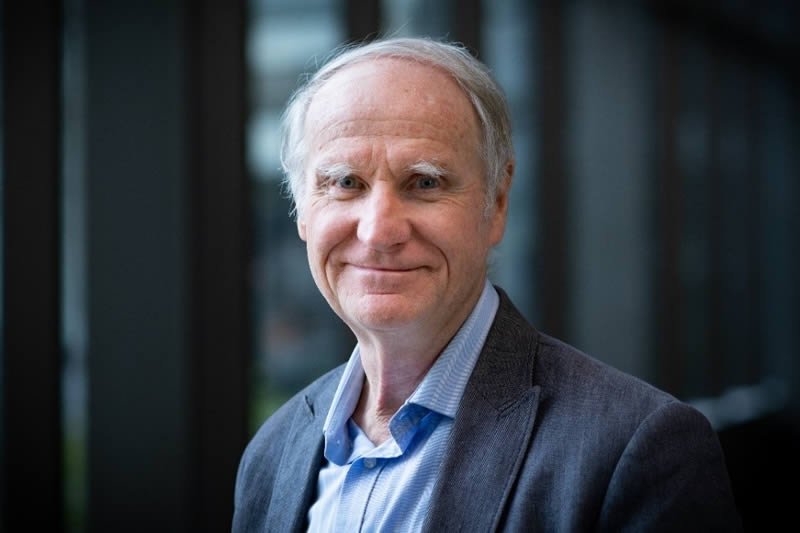 Professor Jim Johnston
Professor Jim Johnston
Victoria University Of Wellington
A world-renowned inorganic and materials chemist focussed on commercial outcomes
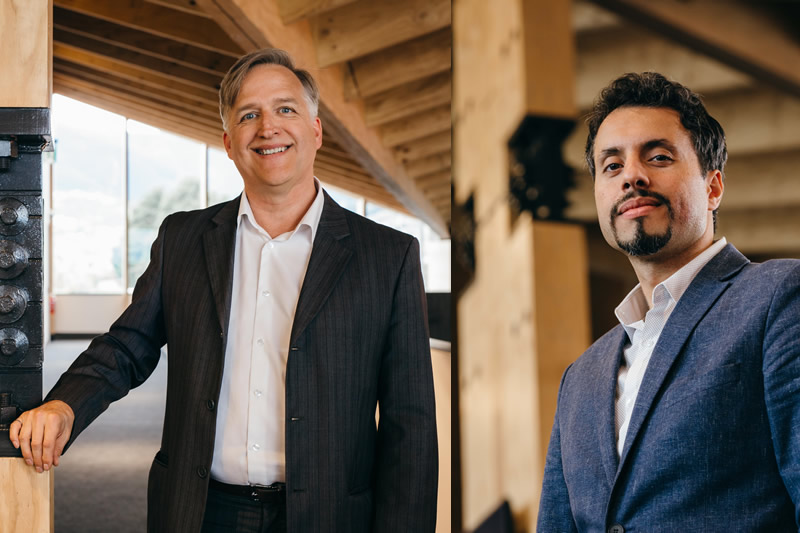 Professor Pierre Quenneville &
Professor Pierre Quenneville &
Dr Pouyan Zarnani
Long-term Seismic Protection For Buildings And Liquid Storage Tanks
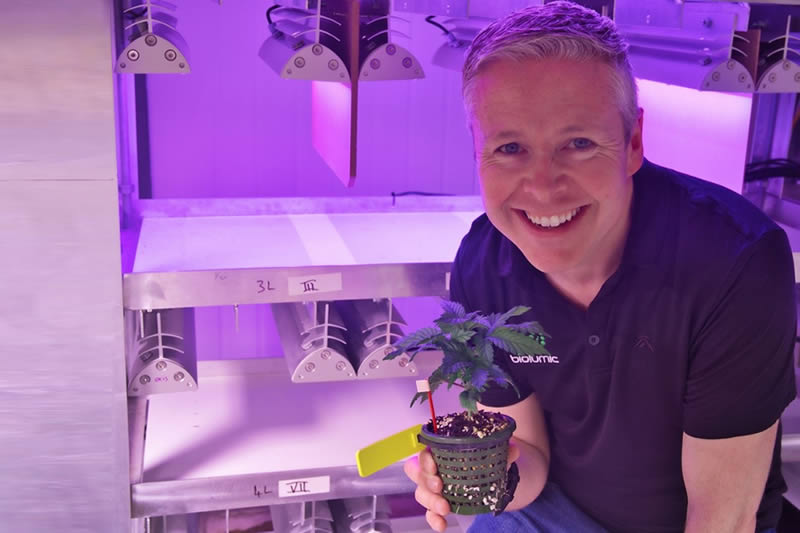 Professor Jason Wargent
Professor Jason Wargent
Massey University & Biolumic
Bringing a next-generation sustainable ag technology to global food production
Professor Jim Johnston — Te Herenga Waka — Victoria University of Wellington
A world-renowned inorganic and materials chemist focussed on commercial outcomes



Professor Jim Johnston, School of Chemical and Physical Sciences, Te Herenga Waka — Victoria University of Wellington is a world-renowned inorganic and materials chemist and applied scientist. Professor Johnston is passionate about adding value to industry and the New Zealand economy through high quality research. He has pursued the commercial application of his research as a matter of course, founding a number of innovative companies and industry partnerships as a result.
Professor Johnston has either founded, or been involved with, countless new ventures and technologies throughout his long and outstanding research career. These include spin-out companies Wetox Limited, Noble Bond Limited and, most recently, Inhibit Coatings Limited.
During his extensive and much-awarded research career, Professor Johnston has spent the majority of it at the interface between academia and industry.
He has worked closely with businesses in New Zealand and overseas to utilise applied chemistry, materials science and nanotechnology to make new high-value products and generate new chemical process technologies that can be taken to market where they can help to meet business needs and create impact.
In addition to his success with research and commercialisation, Professor Johnston is equally passionate about developing his undergraduate and postgraduate students, nurturing them both academically and commercially, and making both career pathways available to them.
Professor Johnston is a textbook example of what can happen when excellent researchers are also committed to commercialising their work.
Professor Pierre Quenneville, University Of Auckland & Dr Pouyan Zarnani, Auckland University Of Technology
Long-term Seismic Protection For Buildings And Liquid Storage Tanks



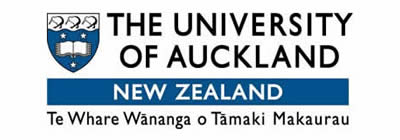

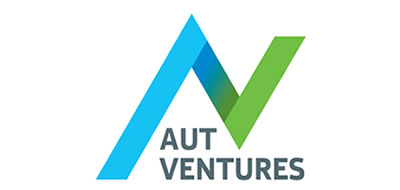
Professor Pierre Quenneville (University of Auckland), and Dr Pouyan Zarnani (AUT) have spent the last decade directing their research efforts to developing practical technologies, especially in seismic applications, having seen the structural downfalls in the 2011 Christchurch Earthquakes.
In 2016, Pierre and Pouyan founded Tectonus to commercialise their research output: an innovative structural connection that enables buildings to withstand earthquakes and aftershocks, without requiring replacement or post event maintenance. This structural connection, which can be seen in Nelson Airport along with other commercial projects across New Zealand, significantly reduces the business disruption and economic risks. The Tectonus earthquake devices can be implemented in both new and retrofit structures of any material and deliver true damage avoidance for buildings in earthquake zones - in a very cost-efficient way.
The Tectonus earthquake technology has also been adapted to suit another industry that is at earthquake risk: liquid storage tanks. These hold-down devices protect liquid storage tanks, in wine, dairy and petrochemical industries, from suffering damage when earthquakes strike. Several projects are already in the pipeline for these devices as the potential is great.
Under the leadership of Pierre and Pouyan, Tectonus raised >$1.5M from prominent investors including UniServices, K1W1, NZGC, Lindsay Investments, Angel HQ and Nelson Angel. Tectonus has an impressive project portfolio in New Zealand and is now embarking on North American projects with globally recognised engineering consulting firm Fast +Epp from their Vancouver headquarters.
Professor Jason Wargent, Massey University & Biolumic
Bringing a next-generation sustainable ag technology to global food production

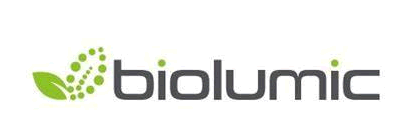
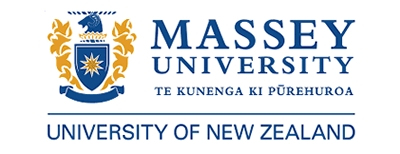
Professor Jason Wargent is a plant biologist who has dedicated his career to developing new scientific knowledge that can be exploited in sustainable crop production. Trained in the UK, and a Massey academic staff member for nearly 10 years, Jason spun his research out of Massey in 2013 to found BioLumic, an Agtech start-up company which exploits plant responses to light to induce agriculturally desirable crop traits, without the need for chemicals or GM approaches.
Professor Wargent's research has led to numerous high-quality research publications, and has attracted millions of dollars in funding, including from the prestigious Marsden Fund. Jason's discovery that modern LED lighting technology could be used to apply treatments of light to seeds and plants, and to dramatically increase crop yields, led to the research spin-out creation of BioLumic, a Manawatu-based company which now has 25+ employees in locations around the world, has product in-market, and has received $14M dollars in investor capital, and $3.8M in NZ government R&D funding.
BioLumic's R&D HQ is the world-first UV Photobiology R&D Centre, hosted by Massey in Palmerston North, opened in May 2018. Jason is also Entrepreneur-in-Residence at Massey, and a passionate advocate of University spin-out and start-up culture.
MinterEllisonRuddWatts
Commercialisation Professional Finalists
This award recognises a commercialisation professional working within a New Zealand research organisation who has made an outstanding contribution to the commercialisation of publicly-funded research.
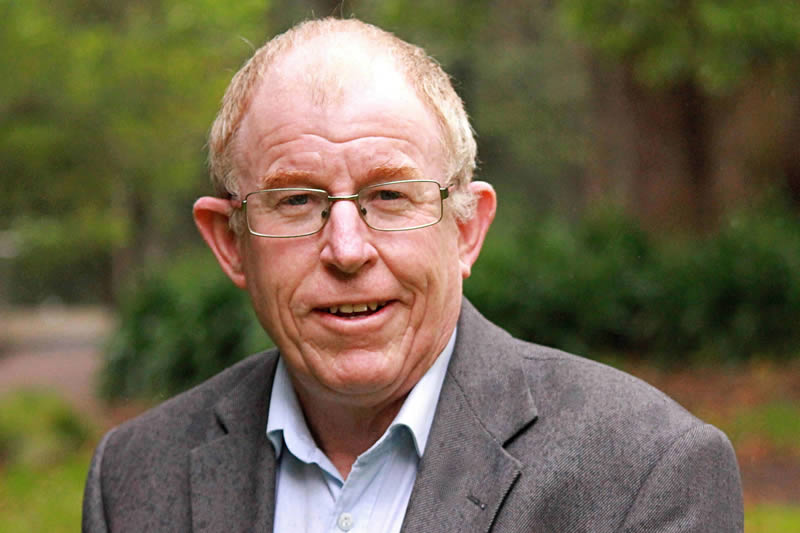 Dr Ian Boddy
Dr Ian Boddy
IKB Consulting
Translating complex commercialisation issues into simple actions to get deals done
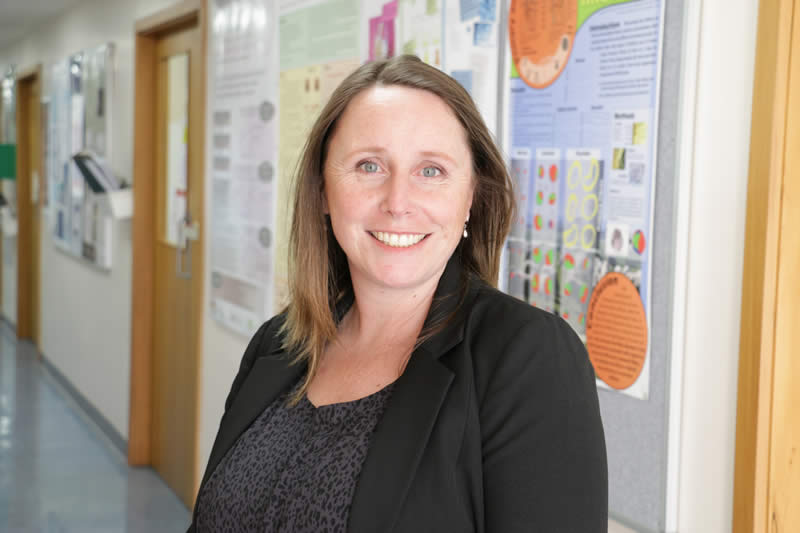 Brooke Marshall
Brooke Marshall
AgResearch
Creating impact from AgResearch’s world class science
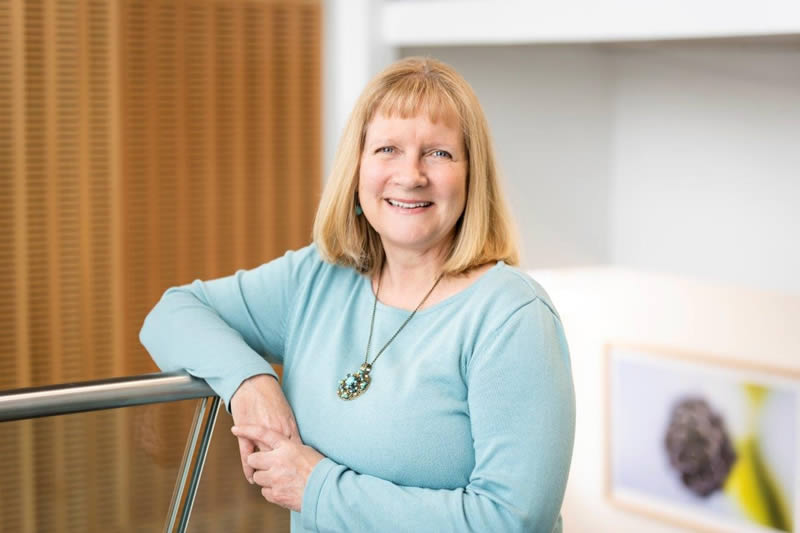 Sue Muggleston
Sue Muggleston
Plant & Food Research
Championing commercialisation of technology through best practice IP management and mentoring
Dr Ian Boddy, IKB Consulting
Translating complex commercialisation issues into simple actions to get deals done


Dr Ian Boddy is a man whose personal impact on commercialisation in New Zealand is wider and deeper than anyone can observe.
After a career including research at Cambridge University and with German agrochemical company Schering AG, Ian developed a passion for science that achieved impact. He brought that focus back to New Zealand ahead of its time, and was identified within the ranks of our then-largest CRI, AgResearch, as someone who understood commercialisation.
While at AgResearch Ian was instrumental in the founding of first-of-its kind Celentis, a free-standing commercialisation entity which understood the need to engage and align real business talent alongside research capability, and to operate outside the bureaucratic constraints of the parent. He also recognised that at that time IP was one of the worst-executed areas of commercialisation and developed a set of practises around developing the right IP and using it to create value, rather than the usual focus of simply protecting it.
When Ian left AgResearch after two decades of contribution, he began an even more productive period of helping other CRIs, Universities and start- up businesses with their thorny commercialisation problems. He has worked with a large number of such groups so far and is known for his insight and ability to make complex problems simple and the next steps seem eminently do-able. As an external consultant, his achievements are largely invisible as they often appear to be the achievements of his clients.
Brooke Marshall, AgResearch
Creating impact from AgResearch’s world class science


Brooke Marshall, Commercialisation Manager at AgResearch, is a lawyer by trade, but a commercialisation champion at heart. Brooke has vigorously applied a lean startup mindset to transform the commercialisation capability of AgResearch since her appointment in July 2018.
Acting as an "intraprenuer" within the organisation, Brooke has instigated a range of key initiatives to fast track cultural change within AgResearch and strengthen its commercialisation capability, while increasing revenue and deal-flow along the way.
In Brooke's first year at AgResearch she increased royalty and licensing revenue by 349% and pipeline activities by 33%. She also developed the "A-Prize" competition to stimulate a culture of innovation within AgResearch, generating a novel pipeline of 17 commercialisation opportunities in 2019 and a newly minted team of entrepreneurs who have recently completed KiwiNet's inaugural Rewa Tran-Tasman Pre-Accelerator programme.
Brooke's impact upon the way AgResearch does business is significant, with a key stakeholder noting that AgResearch is bringing more realistic, flexible, and innovative commercialisation options to them.
Brooke is a rising star within the commercialisation profession and is poised to make a substantial contribution to New Zealand's innovation ecosystem as her career develops.
Sue Muggleston, Plant & Food Research
Championing commercialisation of technology through best practice IP management and mentoring

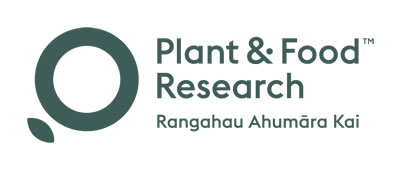
Sue Muggleston has been managing technology intellectual property for Plant & Food Research since 2000 and is a tireless champion for IP management to ensure commercialisation opportunities are realised. She has been instrumental in establishing policies, systems and processes, as well as igniting cultural change, to support the successful protection and commercialisation of Plant & Food Research's intellectual property. This activity has underpinned Plant & Food Research's evolution to a company with a focus on technology development.
In a business development capacity, Sue demonstrates the skills required to deliver partnerships that generate commercialised products. She has developed relationships with multiple companies, both New Zealand and overseas, to generate new research and royalty revenue for Plant & Food Research and New Zealand (she walks the talk!).
Sue is passionate about the development of others to ensure they have the skills to be successful in the business of science commercialisation. Her training and professional development activities have extended beyond Plant & Food Research to hundreds of people in commercialisation roles around New Zealand and Australia.
PwC Commercial Impact Finalists
The commercial impact award celebrates excellence in research commercialisation delivering outstanding innovation performance and the potential for generating significant economic impact for New Zealand.
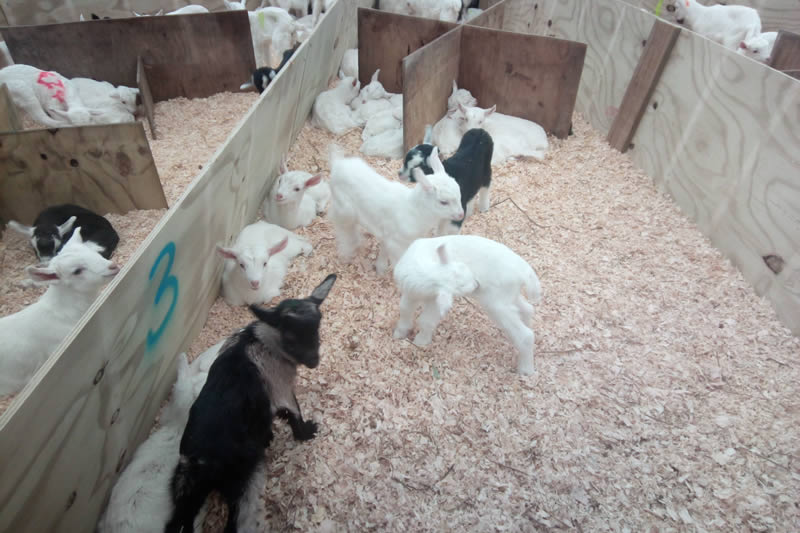 University of Auckland
University of Auckland
Dairy Goat Genetic Selection
Genetic Selection of High-Value Dairy Goats - PM-1 Gene Test
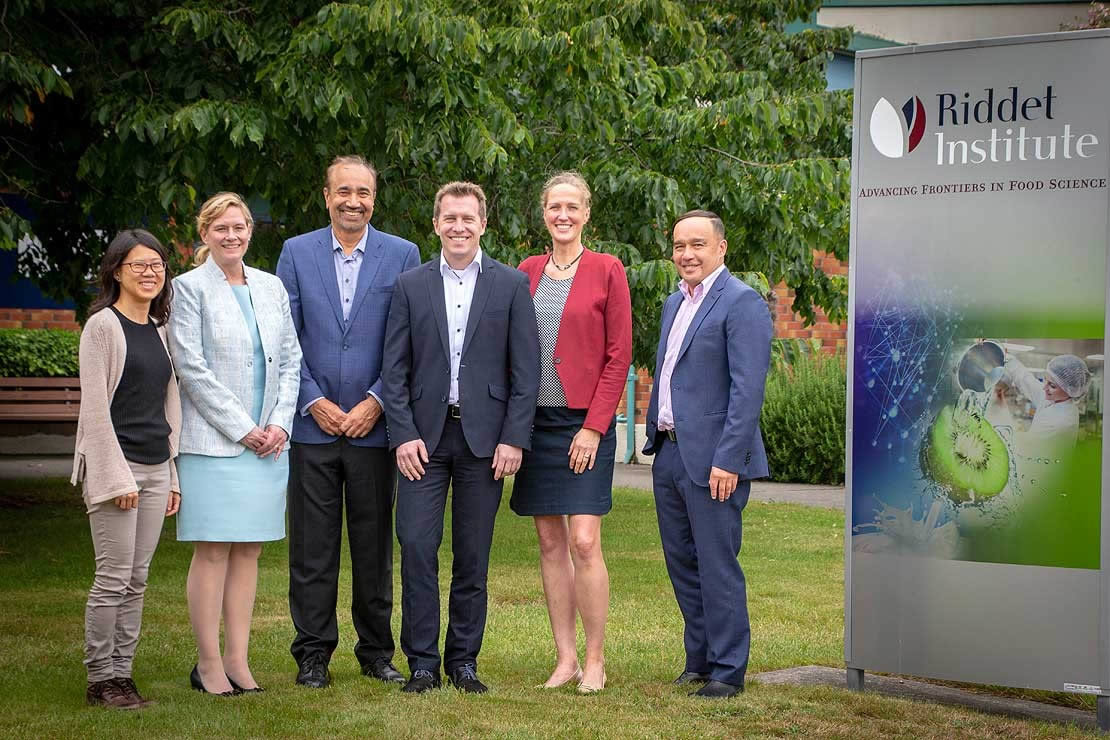 Massey University
Massey University
‘FERRI PRO’ IP Sale
A partnership to help address the global problem of iron deficiency
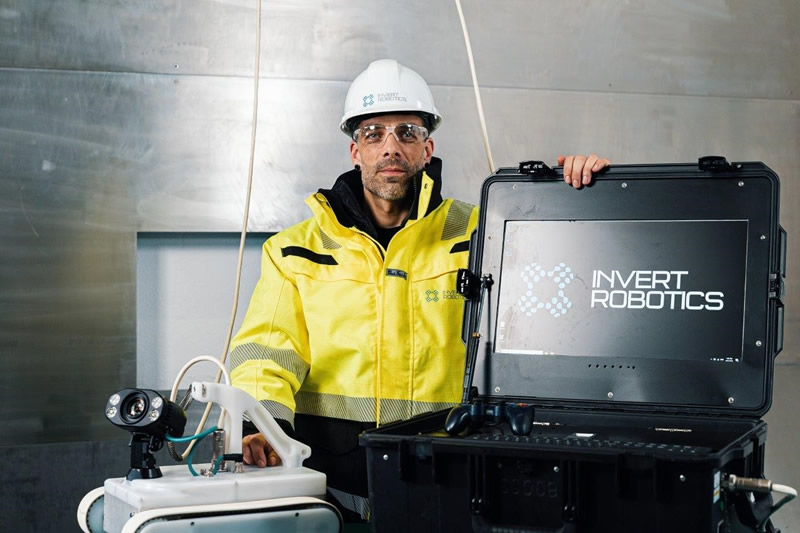 Invert Robotics - Suction Based Robots For Industrial Inspection
Invert Robotics - Suction Based Robots For Industrial Inspection
World first technology eliminating height and confined space hazards
University of Auckland - Genetic Selection of High-Value Dairy Goats
PM-1 Gene Test
Shareholders of New Zealand's Dairy Goat Co-operative are now using the PM-1 test to select goats producing up to 20% more milk for manufacture of premium infant formula, one of New Zealand's highest-value export products.
With co-funding from MBIE, Dairy Goat Co-operative partnered with scientists from Auckland and Massey universities to conduct the first large-scale screen to characterise the genetic profile of New Zealand's dairy goats.
After discovering a genetic variant responsible for a major increase in milk productivity, the partners re-focussed the project's strategy to secure IP freedom to operate and rapidly deploy the discovery. A low-cost commercial DNA test was developed with New Zealand service company GenomNZ.
The team's strong motivation to rapidly make their exciting research finding available to goat farmers translated rapidly into a commercially available, practical and successfully applied product – all within the time initially allocated for the research phase alone.
This success has added significant value to goat breeding practices, and has established the implementation and commercialisation pathways for additional tests to be released in the near future. The ability to increase milk production without increasing herd size also contributes to environmental sustainability of the New Zealand dairy goat industry.


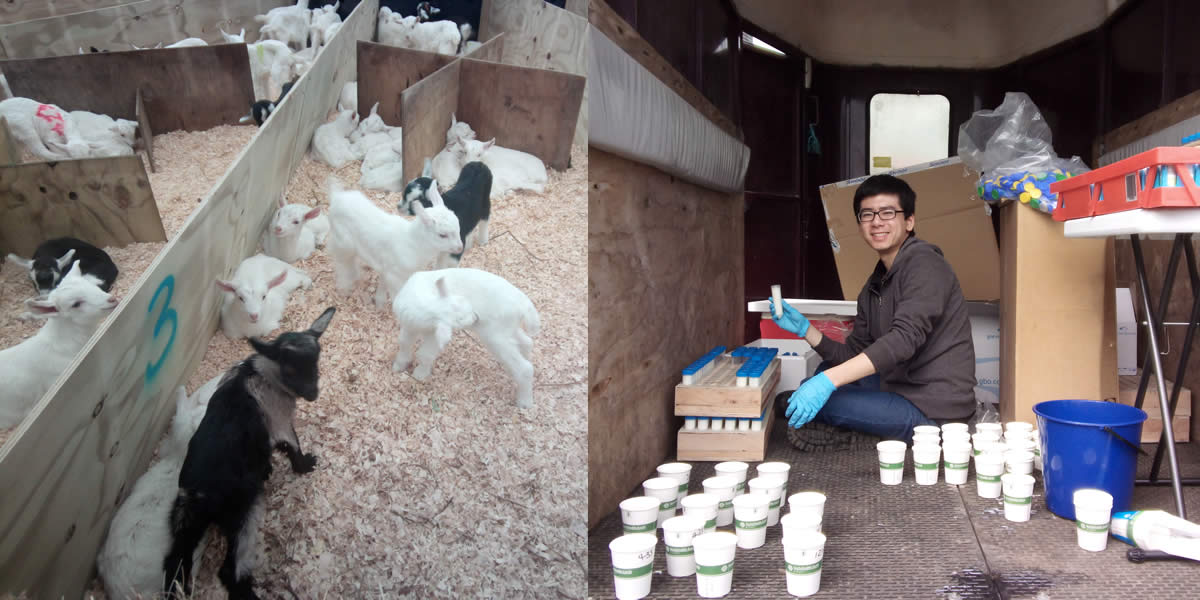
A new generation of dairy goats and a new generation of dairy research scientists
Winner: Massey University: ‘FERRI PRO’ IP Sale
A partnership to help address the global problem of iron deficiency

from left: Dr Joeska Husny, Mrs Deborah McRonald, Distinguished Professor Harjinder Singh, Dr Swen Rabe, Birgit Holst, Massey University business development and commercialisation Rick Gain



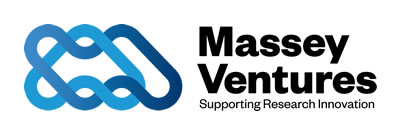
Scientists from the Riddet Institute, a Centre of Research Excellence hosted at Massey University, developed a unique technology (FERRI PRO) to help address global iron deficiency, a problem that effects more than 1.6b people around the globe. Anaemia effects 25-30% of the population and about half of the cases are due to iron deficiency.
The novel protein-iron complex, made using food-grade materials, enables fortification of food products and beverages without compromising the quality and taste, a common problem with many other fortification methods.
The commercialisation process involved engaging with Nestle headquarters in Switzerland, establishing an exclusive trial period and ultimately negotiating the sale of the intellectual property. The negotiation involved face to face meetings in Switzerland and regular video conferencing over an 18 month period.
The final agreement, signed in December 2018, involves the assignment of the IP to Nestle in exchange for payments against technology transfer, commercial launch and regulatory milestones. By using a risk sharing model we were able to substantially increase the potential value to Massey.
In January 2019 a senior delegation from Nestle headquarters visited Palmerston North to better understand the capability and capacity of the Riddet Institute, Massey University and the wider science system through Food HQ. The Riddet Institute presented a portfolio of 19 other market informed R&D projects. The close working relationship with the world's largest food company could provide significant and on-going benefit to New Zealand.
Invert Robotics - Suction Based Robots For Industrial Inspection
World first technology eliminating height and confined space hazards


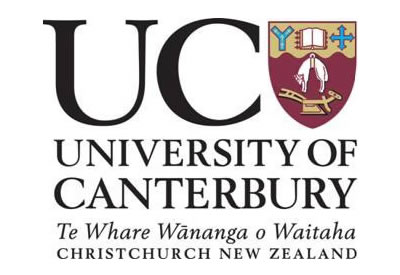
In 2007, researchers at the University of Canterbury developed a world first crawler capable of climbing non-magnetic materials. In collaboration with the Department of Mechanical Engineering, UC Research and Innovation and local Technology Incubator Powerhouse Ventures, UC engineering student James Robertson identified a market for the technology and spun out Invert Robotics in 2012.
The global dairy industry, including local stalwarts Fonterra, Westland and Synlait, are dependent on equipment made from non-magnetic stainless steel, namely large tanks and powder spray dryers. This equipment can crack over time and left unchecked these defects present a risk to product quality.
Launched in 2013, the Invert Robotics inspection service is based around the unique crawler technology. Clients of the service completely eliminate the confined space entry and working at height hazards associated with the traditional inspection technique – hanging people on ropes inside the tank with a torch.
Invert Robotics has successfully raised more than $15M in growth capital through NZVIF, investment funds and private investors since inception and continues to experience strong growth. In addition to servicing forty countries from six global offices, expansion opportunities in the Chemical and Aerospace markets loom and the growth trend continues.

